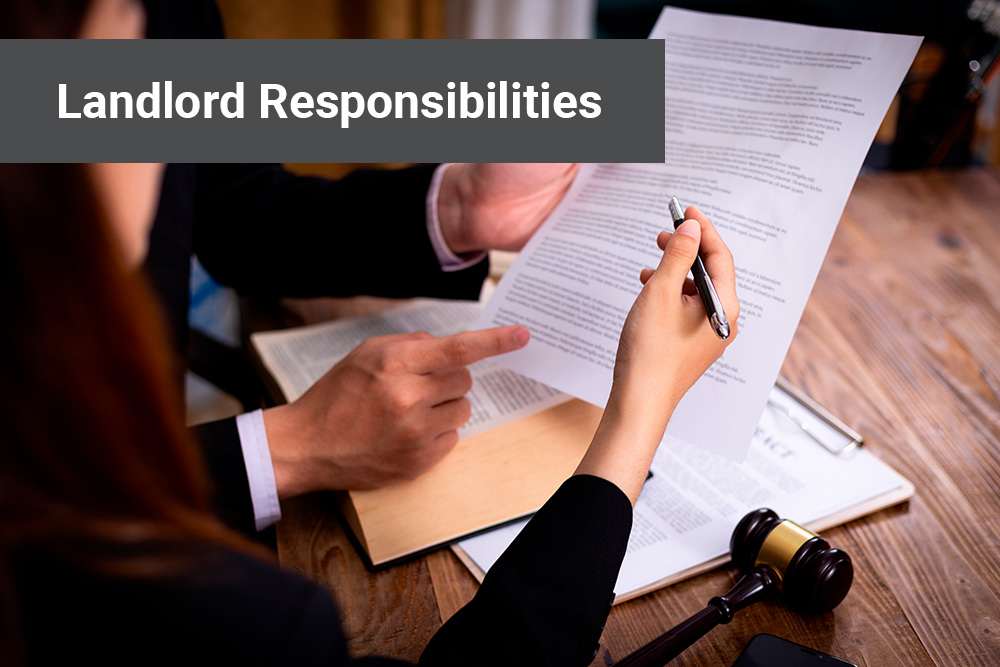No matter which side of the equation you’re on, it is essential to understand Nevada’s tenant-landlord laws. Tenant-landlord laws are both state and federal laws, and knowing both sets of laws can help you better understand how to navigate any housing disputes that come up. If you have questions about tenant-landlord laws in the state, Las Vegas property management can help walk you through the law.
Anti-Discrimination Laws
Anti-discrimination laws exist at the state and federal levels, property managers in Las Vegas will explain. Within the state, discrimination issues regarding housing are handled through the Nevada Equal Rights Commission or the NERC. The NERC keeps forms readily available on its website for people to complete when they feel they are facing a housing issue that involves discrimination. Tenants can also file a complaint with the U.S. Department of Housing and Urban Development (HUD), a federal agency dealing with housing issues. In Nevada, the Nevada Revised Statutes (NRS) Chapter 118 contains laws that deal with discrimination statewide. Tenants should note that while there are state and federal housing laws concerning discrimination, only Nevada’s laws specifically include the LGBTQ community.
How Should Landlords Screen Tenants?

To prevent discrimination-related problems or to avoid being perceived as one who discriminates against tenants, landlords should be careful about screening their tenants. Even before renting a property, landlords can decide that a tenant is not fit for the rental for several legal reasons. A poor credit score, criminal record, or previous evictions are all issues that allow a landlord to disqualify a prospective tenant from renting. To avoid problems in the first place, landlords should try to make their tenant selection process transparent. They should opt for the first qualified tenant who comes along, which will eliminate the appearance of discrimination if a tenant takes legal action against the landlord.
Security Deposits
Security deposits are another common source of concern in tenant-landlord disputes, as the best property management in Las Vegas agrees. Fortunately, Nevada also has state regulations on security deposits. According to state law, the maximum amount of money a landlord can collect is three months’ worth of rent. When the lease or contract ends, the landlord must return the security deposit within 30 days, starting from when the lease ends. If the landlord decides to hold onto any money from the deposit, they must create an itemized list of damages explaining why they withheld the money.
Nevada’s state laws do not govern where security deposits must be kept or how they should be collected, but the landlord should provide the tenant with a checklist at the move-in time that provides detail about the property’s condition when the tenant takes over the rental. The landlord should also note in writing that the rental is expected to be returned in the same condition as when the tenant started the lease. The landlord should also specify how the security deposit will be returned. Sometimes landlords may charge a non-refundable fee. If that is the case, the landlord must provide details in writing to the tenant, explaining what the fee is for and why it will be withheld. This provision should be included in the terms of the lease.
Nevada Rent Regulations
In Nevada, no statutes regulate prepaid rent, bounced checks, or late fees. However, if a landlord chooses to raise the rent on a tenant, the tenant must be notified at least 45 days in advance if the lease is a month-to-month agreement. The landlord must notify the tenant of a rent increase 15 days before the rent is raised in cases where the lease terms are under 30 days. As property managers in Las Vegas explain, tenants also have some rights when it comes to rent payments in Nevada. If the landlord fails to fix a problem in the rental or make requested repairs within a specified period, tenants can withhold the rental payment until or unless the repairs are made. If tenants must make the repairs themselves, they can deduct the cost of the repairs from their rent.
Nevada Laws on Leases, Terminations, and Evictions
If the tenant doesn’t pay the rent on time, the landlord has the right to provide a written five-day notice saying that the tenant must either pay the rent or leave the rental. If the tenant has violated a provision of the lease, the landlord may also provide the tenant with a written five-day notice to remedy the situation or vacate the rental. If the landlord does initiate an eviction, Nevada state law prohibits utility shutoffs and lockouts.
If a lease is structured as a month-to-month arrangement, the tenant and landlord both have 30 days to terminate the lease. If the lease is a week-by-week agreement, either party can terminate the lease in seven days.
Right to Entry
Nevada state law states landlords must provide their tenants with at least 24 hours’ notice before they enter the property. There is an exception for emergencies, where no advance entry notice is required. Landlords may give more than 24 hours’ notice in writing, but they cannot request an entry period of fewer than 24 hours.
When Can a Tenant be Evicted?
A tenant can be evicted in several situations in Nevada, including if they fail to pay rent. In that case, the landlord can issue a 7-day Notice to Pay. If the tenant doesn’t pay in that time, the landlord can proceed with an eviction. Violating a lease is also grounds for dismissing a tenant. The landlord can also write the tenant a 5-day Notice to Comply outlining how the tenant can fix their behavior. If the tenant stays in the rental beyond the agreed-upon rental term, the landlord can proceed with a notice to quit. Any illegal acts documented on the property also make a tenant subject to dismissal.
Landlord Responsibilities

As property managers in Las Vegas note, landlords have several responsibilities if they wish to operate and maintain a rental in the state. Any problem must be addressed within 14 days, according to Nevada state law, or sooner in the case of an emergency. If a landlord doesn’t fix the problem in time, the tenant can make the repairs themselves and deduct the payment from their following rent payment, or they can withhold rent until the issue is resolved. Landlords are responsible for dwelling structures, plumbing, water, electrical outlets and wiring, garbage removal, air conditioning, mold, building structure, and bed bugs.
Tenant Responsibilities
Similarly, tenants also have responsibilities when renting a property in Las Vegas. Tenants must keep the unit habitable and safe and make sure that all the plumbing fixtures are clean. Nevada state law requires tenants to use appliances and facilities reasonably, and tenants are prohibited from negligently or deliberately destroying any part of the premises. Tenants must not make any noise that disturbs other tenants or their neighbors, and they are responsible for making more minor repairs to their property and maintaining it as needed.
If you are looking for assistance understanding Nevada’s tenant-landlord laws, you’re probably wondering “where are good property managers near me”? Contact The Mor Group today to learn more.


